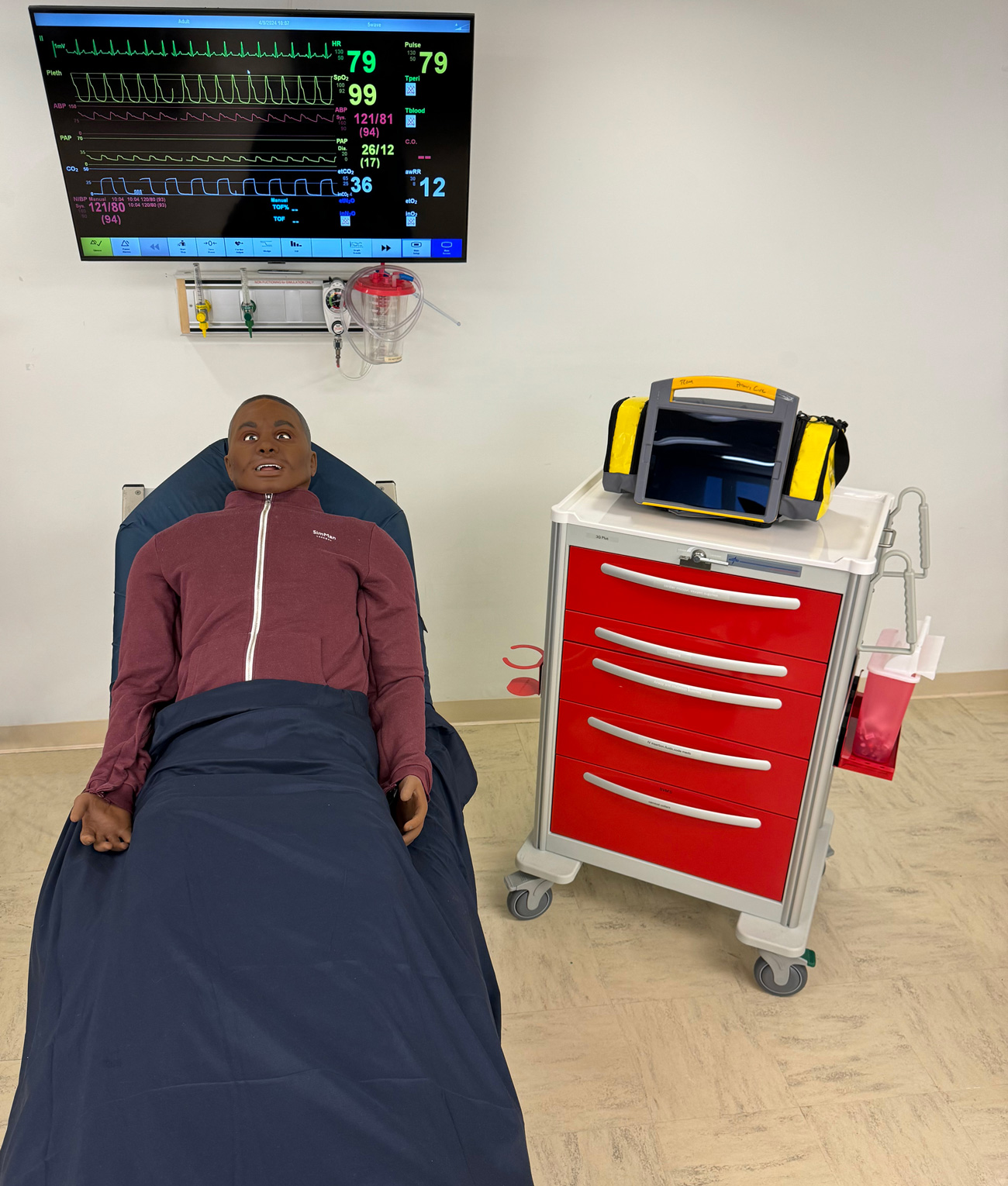
The Medical Simulation Program
Medical simulation is a substantial part of training and assessment at Touro College of Osteopathic Medicine and an invaluable tool in your medical education journey.
Designed to enhance learning, improve patient care, reduce medical errors, and prioritize patient safety, our simulation program offers you a chance to immerse yourself in realistic clinical scenarios that help build practical skills and confidence. Through our medical simulation program, you will have opportunities to develop critical thinking, clinical decision-making, teamwork, communication, patient care and various medical procedural skills, all within a safe and controlled environment.
Our program includes hands-on experiences with a range of simulation modalities, including high-fidelity manikins, task trainers, and standardized patients. These experiences allow you to apply your knowledge in a realistic setting where you can develop, practice and refine your skills. This approach ensures that you can learn, practice, and receive valuable feedback in a psychologically safe environment, giving you the space to grow and improve at every stage of your training.
Our simulation centers are designed to support comprehensive clinical skill development, featuring Objective Structured Clinical Examination (OSCE) rooms and simulation lab spaces equipped with advanced simulation capture systems. These facilities, along with dedicated debriefing areas and control rooms, enable formative and summative evaluations, providing real-time and recorded feedback to guide your progress. Through this structured approach, we ensure that you have the resources needed to refine your skills, receive personalized feedback, and continuously improve your clinical competence throughout your training.

Simulation Labs
At Touro College of Osteopathic Medicine, our simulation program is integral to your education, available during class and for scheduled study and practice sessions.
Our high-fidelity simulators are sophisticated, full-body mannequins designed to replicate a wide range of human physiological states. These simulators can produce realistic vocal, heart, lung, and abdominal sounds, as well as simulate variables such as pulse, blood pressure, and oxygen saturation. Students use these simulators to practice a variety of clinical interventions, cardiopulmonary resuscitation, airway management and venous access. The high-fidelity simulators are interactive and responsive, allowing students to assess conditions, make clinical decisions, and provide treatments, with the simulators responding to those interventions in real time. This dynamic feedback provides both qualitative and quantitative data, offering insights into the effectiveness of student actions and enhancing the overall learning experience. These hands-on opportunities ensure that you gain critical, practical experience in a controlled environment before encountering real patients.
In addition to high-fidelity simulators, Touro College of Osteopathic Medicine utilizes task trainers to further enhance your clinical skill development. Task trainers are specialized devices designed to focus on specific clinical skills and procedures, such as venous access, ultrasound-guided techniques, suturing, intubation, lumbar punctures, otoscopic exams, and ophthalmoscopic fundus examinations. These trainers allow you to practice essential skills in a supervised, supportive environment, helping you build proficiency without posing risks to real patients. Task trainers are an essential part of your training, enabling repeated practice of procedures so that you are fully prepared to perform them on actual patients with confidence.
Objective Structure Clinical Exam (OSCE) Centers
The OSCE centers are imitation medical facilities, set up to mirror a clinical outpatient primary care office, with reception, examination table, sink, and a diagnostic wall panel. In the exam rooms, you will be presented with various case scenarios and work directly with standardized patients (SPs).
Standardized Patient (SP) Program
SPs are members of the community, hired and trained to act as patients in the OSCE centers. They portray medical conditions in a consistent and standardized way, so each student receives a similar experience. SPs help students role play specific case scenarios they might encounter when interacting with patients, and provide feedback on their performance. As a student, you will have the opportunity to administer physical exams to SPs and communicate with them about the case. Faculty members, many of whom are practicing physicians in the community, will be present during the simulated exams to observe and coach you on your technique and communication skills.
Working with SPs allows you to transition to interfacing with real patients in a safe, controlled way, and gain experience developing rapport, delivering bad news, dealing with difficult patients, and working through sensitive issues like domestic abuse.
SPs come from all walks of life, some have acting experience, but it is not a requirement. Learn more about the Standardized Patient Program at Touro.

